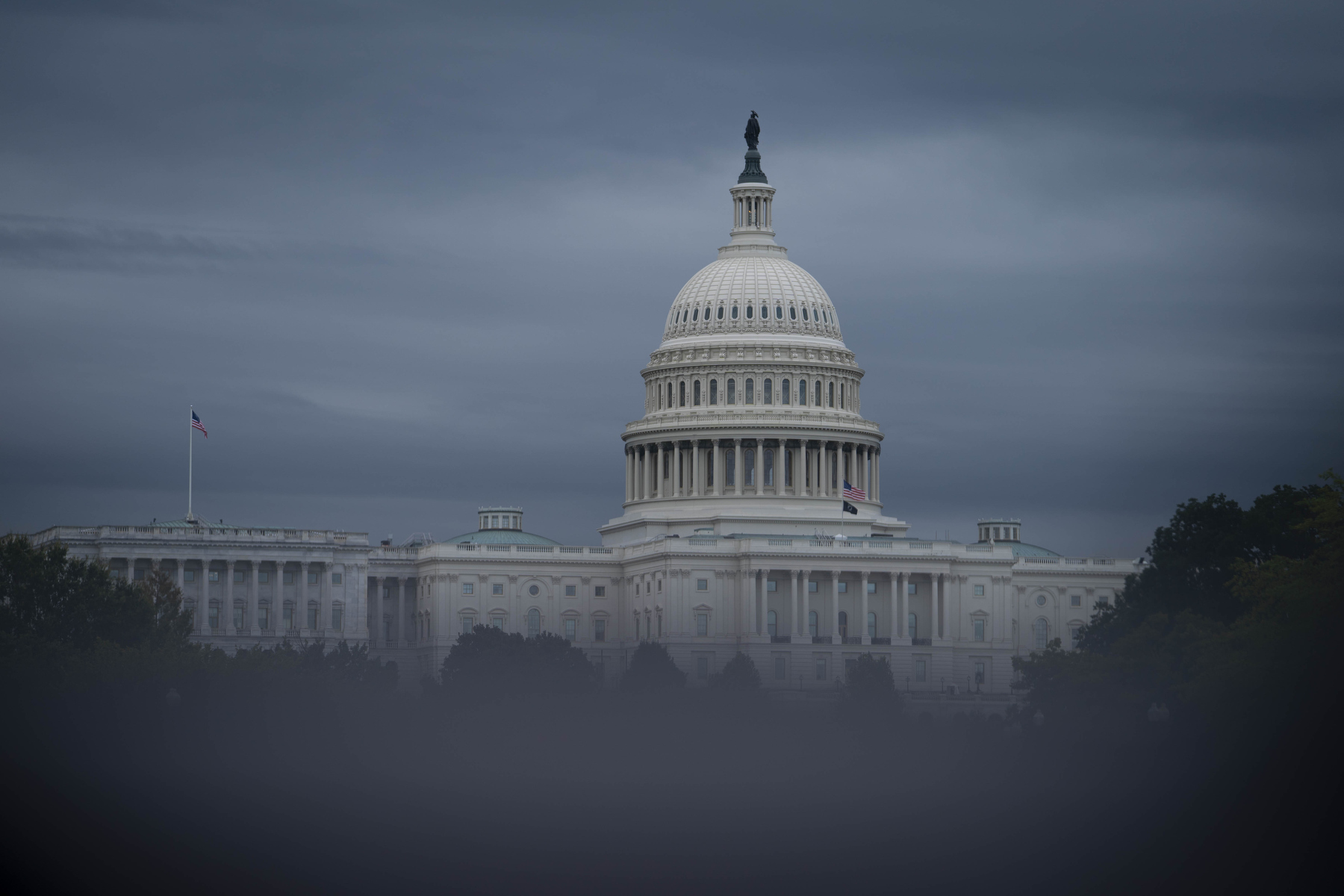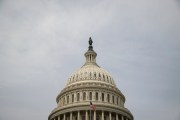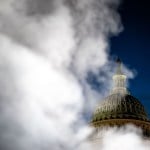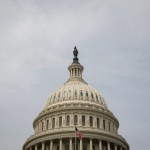December 21 update: The House and Senate have passed a bill to fund the government until March 14. The measure did not address the debt ceiling. President Joe Biden is expected to sign it.
Donald Trump hasn’t moved into the White House yet, but his presence and influence were already at play in Washington this week as Congress scrambled to avert a government shutdown set to begin Saturday.
First, Trump nuked a negotiated bipartisan spending deal. Then, he offered his own plan and announced on his social media site that Republicans had reached an agreement to fund the government and raise the debt ceiling. “SUCCESS in Washington!” he posted on Truth Social.
Within hours, though, conservative Republicans in the House of Representatives joined with Democrats to vote the deal down. It was the second time in as many days that a deal negotiated by GOP House Speaker Mike Johnson disintegrated.
The chaotic scenes playing out in the U.S. Capitol in the final congressional work days of 2024 were reminiscent of late 2018, when Trump’s insistence on funding for his border wall during his first presidency led to the longest shutdown in U.S. history, with hundreds of thousands of federal workers furloughed over the holiday season.
Johnson and Democratic leaders were close to a bipartisan deal earlier in the week on a measure that would have funded the government at current levels through March 14, 2025. The deal also included an additional $100 billion in disaster relief and $10 billion for farmers.
Trump and key allies, including Elon Musk — who he has tapped to lead the newly conceived, quasi-governmental “Department of Government Efficiency” — all but nuked that deal when they voiced their opposition. Trump said he wanted to tie a measure to raise the debt limit to the spending deal and that he wanted it done under Democratic President Joe Biden’s watch rather than that of his incoming administration.
-
Read Next:
Raising the debt ceiling, which limits how much the federal government can borrow to pay its bills, has become a politically fraught process in recent years. Fiscal conservatives have used the sometimes protracted battles to push to reduce overall government spending.
“It’s embarrassing, it’s shameful,” GOP Rep. Chip Roy of Texas, a leader of the conservative Freedom Caucus, said on the House floor on Thursday night. Roy was one of 38 Republicans who voted against the spending-debt limit plan. Trump immediately threatened to support a primary opponent against him.
The debt ceiling is set to expire in January. Trump’s plan would have allowed him to avoid debt-ceiling negotiations for the first two years of his presidency and, with that, avert the potential to frustrate swift implementation of his legislative agenda. One of its key elements is the extension of Republicans’ 2017 Tax Cuts and Jobs Act, which has key provisions set to expire at the end of next year.
If the debt ceiling is not lifted, the Treasury Department can use something called “extraordinary measures,” which experts estimate would cover spending until June. If the debt ceiling is not raised and the country breaches it, the government will default on its debt, likely causing serious repercussions for the United States and other economies.
Johnson, facing opposition from within the conservative flank of his party, has kept the government open in the past with short-term measures passed with the help of Democrats. This time, though, Democratic leaders said that Johnson could not rely on them to negotiate a new deal after reneging on the one arrived at earlier this week. Trump promised political fallout for lawmakers inclined to support the prior deal; Johnson faces a leadership reelection fight early in the new year.
Here’s what happens if Congress can’t pass a spending plan and the government shuts down.
What is a government shutdown?
A shutdown means that all federal agencies must stop functions that are deemed “nonessential” until money is appropriated for the next fiscal year. Mandatory spending — money for programs including Medicare, Medicaid and Social Security — is not affected. Government functions deemed essential by individual agencies, along with the Office of Management and Budget, continue.
What government functions could shut down? Would Social Security be affected?
Every shutdown is different and there’s a lot we won’t know until it starts and federal agencies begin to furlough workers.
While shutdowns do not necessarily affect the benefits that Americans receive, such as SNAP, the food assistance program for low-income people that is administered by the Agriculture Department, a shutdown could impact how these benefits are distributed if it lasts beyond 30 days, according to the liberal-leaning Committee for a Responsible Federal Budget (CRFB), a nonprofit group that analyzes budget policy. Likewise, Social Security and Medicare benefits would continue as normal for most people, but checks to new beneficiaries could be delayed. During the 1995-1996 shutdown, more than 10,000 Medicare applicants were temporarily turned away, according to the CRFB.
Past shutdowns have impacted national parks, which continued to admit visitors in some cases but stopped many services and closed buildings.
-
From last year:
-
From last year: The 19th Explains: What happens if the government shuts down?
Has the government shut down before?
There have been 21 government shutdowns since 1977. Many of these were short — a single day, a weekend — and did not meaningfully impact government services.
The longest government shutdown was during the previous Trump administration in early 2019, which lasted a full 34 days, weeks longer than past shutdowns.
How will workers be affected?
Millions of workers would be affected, but until agencies announce specific plans, it is difficult to estimate an exact number.
About 2.2 million civilian workers are employed by the federal government, many of whom would either work without pay until a shutdown ends or be furloughed. During the 2019 shutdown, about 800,000 federal workers were furloughed. Government contractors could likewise go without pay and may not be reimbursed. Active-duty military service members and law enforcement are deemed essential and would therefore continue working, but their pay would be delayed.
Regions with higher concentrations of federal workers would be disproportionately affected; there are about 370,000 federal workers in the Washington, D.C., area, for example. Democratic Rep. Abigail Spanberger of Virginia pointed to the number of federal workers in her state who would be impacted last year when she introduced a bipartisan bill that would block members of Congress from being paid during government shutdowns.
A government shutdown has cascading effects. The economy in Washington, for example, is dependent on tourism. In 2019, the Smithsonian institutions shut down after they ran out of cash reserves, and the District of Columbia government estimated that the shutdown was costing the city as much as $12 million a week, mostly from lost sales tax revenue from restaurants, hotels and retail establishments. It also impacted food banks and other support services in Washington and elsewhere as they served an influx of furloughed workers trying to make ends meet.








